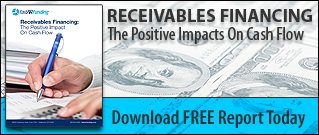 You’ve decided you want to research the best factoring companies in order to improve cash flow in your business. The internet is a powerful research tool to gather information about any subject, but without some general guidelines it is very easy to get lost in the massive amount of information out there. At this point, if you’re looking for different types of factoring for your accounts receivable, you probably already know the basics about invoice factoring. So let’s turn to some critical points you need to dig into.
You’ve decided you want to research the best factoring companies in order to improve cash flow in your business. The internet is a powerful research tool to gather information about any subject, but without some general guidelines it is very easy to get lost in the massive amount of information out there. At this point, if you’re looking for different types of factoring for your accounts receivable, you probably already know the basics about invoice factoring. So let’s turn to some critical points you need to dig into.
Two very important, high level, types of factoring are described by specific terms that are offered by some of the best factoring companies. These are 1) non recourse factoring vs. recourse factoring and 2) full notification factoring vs. non-notification factoring. Here are further descriptions:
- Non Recourse Factoring vs. Recourse Factoring – This is one of the biggest area of misconception in factoring. Most people think non recourse factoring means that the owners of the business are not on the hook for paying back cash advances previously made by the factoring firm, if the invoices they sold to a factoring company ultimately are never paid by the customer. This is similar to a term used in real estate financing, which could lead to confusion. In real estate loans, if someone takes out a loan backed by the real estate (as collateral) and the person stops paying on the loan, then the finance company forecloses on the real estate and takes it back. If it is a non recourse loan, the finance company only ends up getting the real estate, nothing else.
Non recourse factoring is different because the factoring company takes the credit risk of your customer. For example, if you sell lamps to Target and you factor those invoices, if Target goes bankrupt, under a non recourse factoring agreement, you would not have to pay back the factoring firm any cash it advanced you when you sold the original invoice. If you were in a recourse factoring agreement, you would. Seems like non recourse factoring is the way to go, right? However, most factoring companies only provide non recourse factoring arrangements when the strength of your customers is so good that the factoring firm itself purchases its own credit insurance policy to mitigate the risk of your customer (in this example, Target) going bankrupt.
- Non-Notification Factoring vs. Full Notification Factoring – The amount of interaction a factoring company has with your customers may be a very important item for you to consider. In non-notification factoring arrangements, the term says it all, the factoring company does not specifically notify the customers they are working with you. On the other hand, in full notification factoring arrangements, your customers are notified in advance, often with a notice of assignment, which is a document sent out to your customers you are factoring to let them know their invoices have been sold to a factoring firm. There is also legal language required on each invoice to remind your customers that the invoice has been sold to a factoring firm. There are legal ramifications for the factoring company regarding the ultimate collectability of invoices if it chooses to notify your customers, so most factoring firms require this type of engagement. Often, non-notification factoring facilities are only available to larger companies with large pools of invoices being financed.
Which type of factoring is right for your business? If you’re ready to get started with factoring but have some concerns, talk to a reputable factoring company and allow them to walk you through the process.
Fast A/R Funding specializes in helping small businesses bridge the cash flow gap with factoring. Download our Factoring 101 guide to learn more, or call 888.833.2286 to speak with one of our small business finance consultants.






